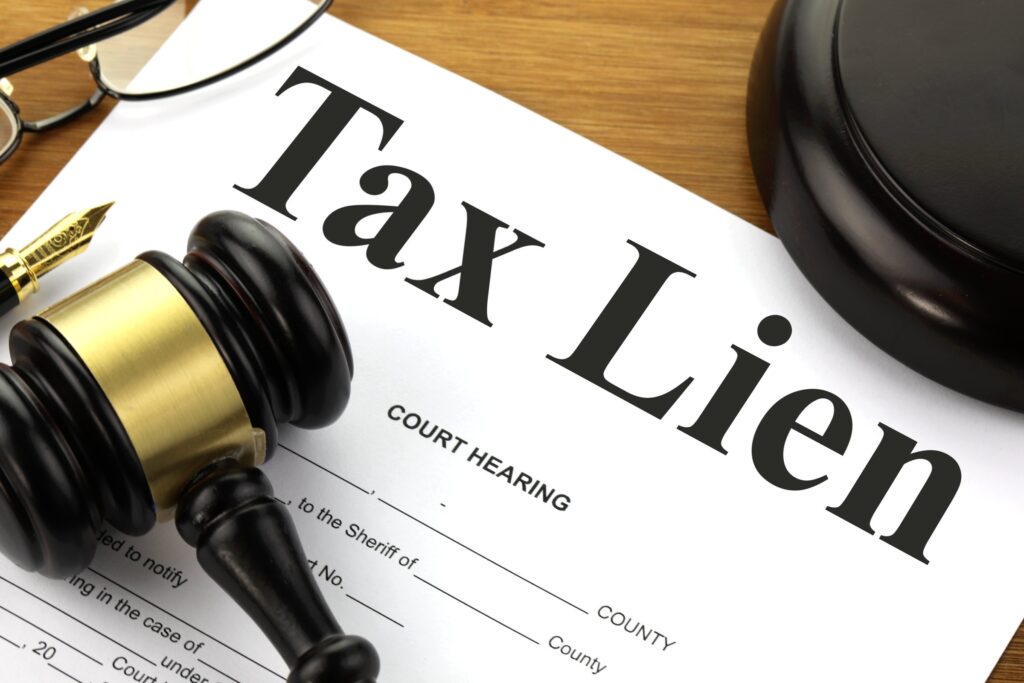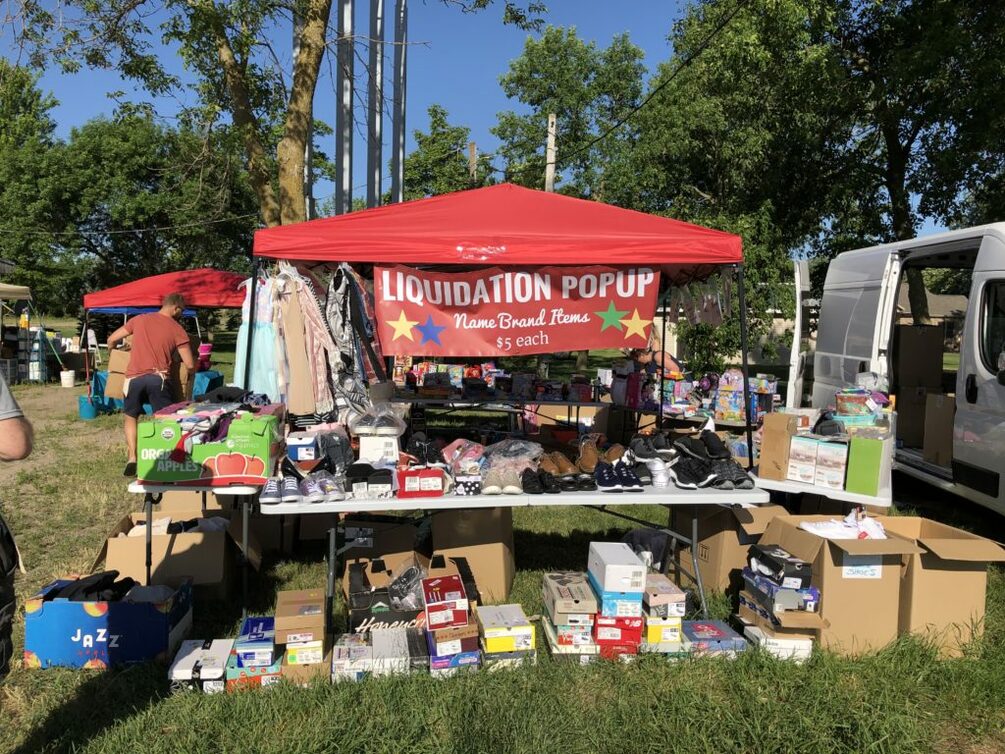
When property owners fail to pay their property taxes, local governments often issue tax liens to recover the unpaid taxes. Investors can then purchase these tax lien certificates, potentially earning interest and fees, and in some cases, even acquiring the property itself. Investing in tax liens offers a unique way to make money, but it’s not without its risks. In this article, we’ll dive into how tax liens work, how you can start investing in them, and the benefits and risks involved in this type of investment.
Contents
- 1. What Is a Tax Lien?
- 2. How Does Buying Tax Liens Work?
- 3. What Are the Benefits of Investing in Tax Liens?
- 4. The Risks Involved with Buying Tax Liens
- 5. Steps to Start Investing in Tax Liens
- 6. What to Do After Buying a Tax Lien
- 7. Tools and Resources for Tax Lien Investors
- 8. Real-Life Success Stories
- Conclusion
1. What Is a Tax Lien?
A tax lien is a legal claim placed on a property by the government due to unpaid property taxes. When property owners fail to pay their taxes, the local government has the right to issue a lien, which becomes a legal claim against the property. These liens can then be sold at auction to investors.
By purchasing the lien, investors are effectively paying the property owner’s tax debt in exchange for the right to collect that debt, along with interest and penalties. While the investor doesn’t own the property outright, they are entitled to payments from the property owner to clear the lien.
2. How Does Buying Tax Liens Work?
Purchasing Tax Lien Certificates: Investors purchase tax lien certificates at auctions, which can take place in person or online. The certificates represent the unpaid taxes plus interest and penalties the property owner must pay back to remove the lien. Once an investor buys the lien, the property owner must repay the investor rather than the government.
Tax Lien Auctions: These auctions are typically held by counties or municipalities. Bidding can vary, but in many cases, investors compete by bidding down the interest rate they are willing to accept. The winner is the one who agrees to the lowest interest rate or, in some cases, who bids the highest price for the lien.
Redemption Periods: After purchasing a lien, there is usually a “redemption period” during which the property owner can pay back the debt (plus interest and penalties) to the investor. If the property owner fails to pay within this period, the investor may have the opportunity to initiate foreclosure proceedings to take ownership of the property.
3. What Are the Benefits of Investing in Tax Liens?
High Returns: One of the key attractions of tax lien investing is the potential for high returns. Investors earn interest on the tax debt they purchase, and these rates are often much higher than traditional savings accounts or bonds. In some states, interest rates can be as high as 18% or more.
Possibility of Acquiring Property: In rare cases, if the property owner fails to redeem the lien, the investor can acquire the property. While this is not the primary goal for most investors, it can be a lucrative bonus, especially if the property is worth significantly more than the lien amount.
Lower Entry Cost: Compared to buying an entire property, tax liens require a smaller initial investment. This allows investors to diversify their portfolios and minimize risk.
Less Competition in Some Areas: While tax lien auctions can be competitive in major markets, some areas with less investor activity may offer better opportunities for higher returns and easier bidding.
4. The Risks Involved with Buying Tax Liens
Lack of Immediate Liquidity: One of the biggest downsides of tax lien investing is that it can take time to realize a return on investment. Redemption periods can last months or even years, during which your money is tied up in the lien.
Issues with the Property: The condition of the property tied to the lien may be unknown, especially in auctions where due diligence isn’t allowed before the sale. You could end up with a lien on a property that is in poor condition or in a location that’s difficult to sell or rent.
Varying Local Laws: Each state and county has its own rules regarding tax lien sales, including redemption periods, interest rates, and procedures for foreclosure. Investors need to fully understand the laws in their target areas to avoid costly mistakes.
Legal and Administrative Costs: If the property owner doesn’t redeem the lien, the investor may need to go through legal proceedings to foreclose on the property, which can be expensive and time-consuming.
5. Steps to Start Investing in Tax Liens
Research: Start by learning about the tax lien process in your state. Each state has different rules governing tax lien sales, redemption periods, and interest rates. Understanding the specific laws and procedures will give you a better chance of success.
Attend Auctions: Tax lien auctions can be held online or in person. Research where and when auctions are held in your area, and sign up for notifications. Online auction platforms have made it easier for beginners to get involved.
Perform Due Diligence: Before bidding on a lien, it’s essential to research the property. Look into its condition, location, and potential resale value. While it’s tempting to focus solely on interest rates, the property itself is equally important in case you end up owning it.
Set a Budget: Stick to a budget and avoid overbidding. Bidding wars can drive up the price of liens, eroding your profit potential. Keep your investment goals in mind and don’t get caught up in the competition.
Track Your Investments: After purchasing a lien, keep close track of the redemption periods and the interest rates you’re earning. Some jurisdictions may require you to file paperwork to ensure you receive your payments.
6. What to Do After Buying a Tax Lien
Once you’ve purchased a tax lien, your next step is to monitor the redemption period. You’ll be notified if the property owner repays the debt, at which point you’ll receive your investment back plus interest.
If the owner doesn’t pay, you may need to initiate foreclosure proceedings. The laws for this process vary, and it’s often wise to consult an attorney. If successful, you could end up owning the property free and clear, or you could sell it to recover your investment.
7. Tools and Resources for Tax Lien Investors
Several websites and tools can assist tax lien investors by providing access to auctions and property data. Websites like Tax Lien Code and Investors Title offer access to lien sales and educational resources to guide you through the process. Additionally, using services such as DeedPro can help with foreclosure research and property valuation.
Books, online courses, and investor forums also provide valuable insights into tax lien investing. Participating in local real estate groups or working with a professional tax lien investment advisor can offer additional guidance.
8. Real-Life Success Stories
Many investors have made significant returns through tax lien investing. For example, one investor in Florida purchased a tax lien for just $3,500 and later sold the property for $75,000 after the owner failed to pay. While not all stories end in property acquisition, successful investors often earn high returns by investing in several liens and staying patient through the redemption process.
Conclusion
Buying tax liens can be a profitable venture, offering high returns with relatively low initial investments. However, the key to success lies in thorough research, careful budgeting, and patience. While the potential for earning interest is attractive, investors should also be aware of the risks and legal hurdles involved. With the right knowledge and strategy, tax lien investing can become a valuable part of your financial portfolio.
If you’re considering jumping into tax lien investing, start small, do your homework, and enjoy the potential rewards that come from helping municipalities recover lost revenue while earning a tidy profit yourself.




